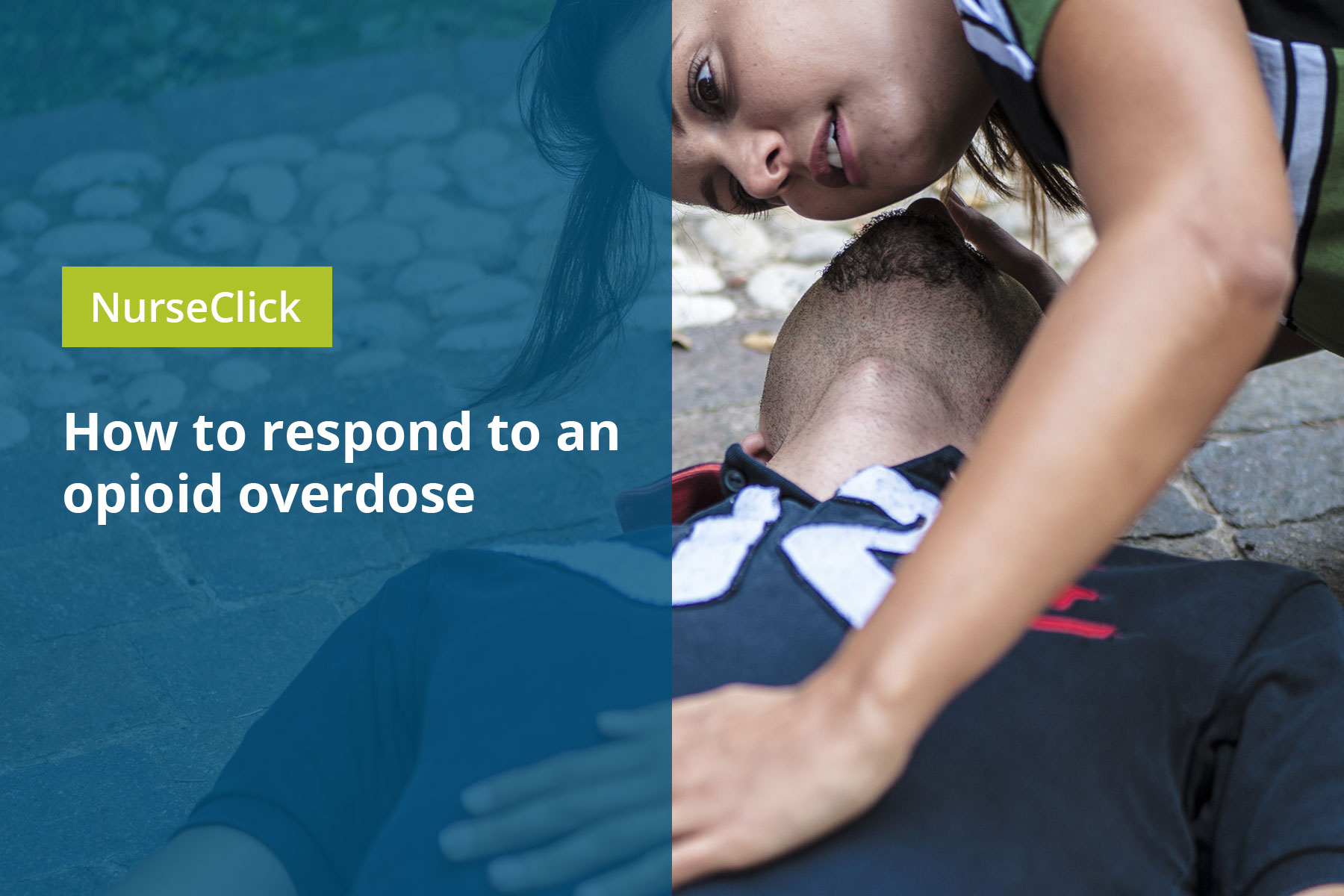A recent report by the National Drug and Alcohol Research Centre has found that there are an average of five drug-induced deaths in Australia per day.
As nurses, we hold a pivotal role in not only identifying and managing substance use issues but also in fostering community education and awareness.
Understanding the signs of an opioid overdose and knowing how to take swift action can mean the difference between life and tragedy.
In this article, we summarise the key steps of responding to an opioid overdose in a community setting, to empower those confronted with an emergency situation to be equipped with the knowledge and tools to respond effectively.

Assess danger
Check for hazards and ensure there is no danger to yourself or others.

Evaluate overdose symptoms
Check for slow, shallow breathing or snoring, pale, cold or clammy skin, blue lips or fingernails or pinpoint pupils.

Try to elicit a response
Try to wake the person by shouting their name or gently shaking their shoulders.

Call 000
If the person is unresponsive, call 000 immediately.

Administer Naloxone
Administer one dose following the instructions included with the product.

Perform rescue breathing
Clear the airways and perform rescue breathing: tilt head, lift chin, pinch nose, breathe into mouth every five seconds.

Place in recovery position
Place the person in the recovery position: on their side, with their top leg bent at a right angle and their head supported.

Administer second dose
If there is no response within three minutes, administer a further dose of Naloxone every 2-3 minutes until there is a response or the ambulance arrives.
Specialised training in drug and alcohol nursing equips nurses with the knowledge and skills required to identify signs of substance misuse, provide appropriate interventions, and offer support to individuals dealing with addiction. By having a strong foundation in drug and alcohol training, nurses can better contribute to preventing opioid overdoses, ensuring patient safety, and fostering a healthier community overall.
If you are looking to enhance your expertise in drug and alcohol nursing, ACN’s Graduate Certificate in Drug and Alcohol Nursing will equip you with the essential knowledge and skills to provide person-centered care within this growing specialty. The course prepares nurses to assess, treat and care for persons experiencing alcohol and other drug dependence while gaining an in-depth understanding of substance use issues from both an individual and public health perspective.
Learn more at acn.edu.au/drug-and-alcohol





